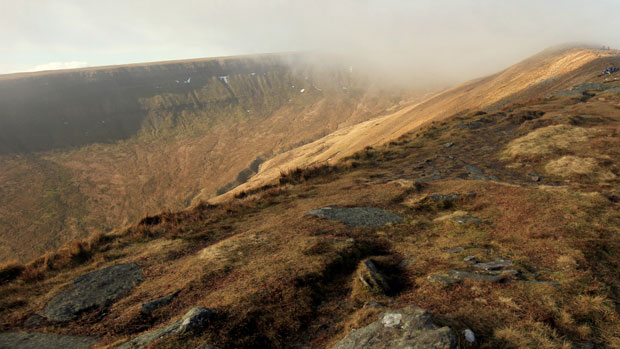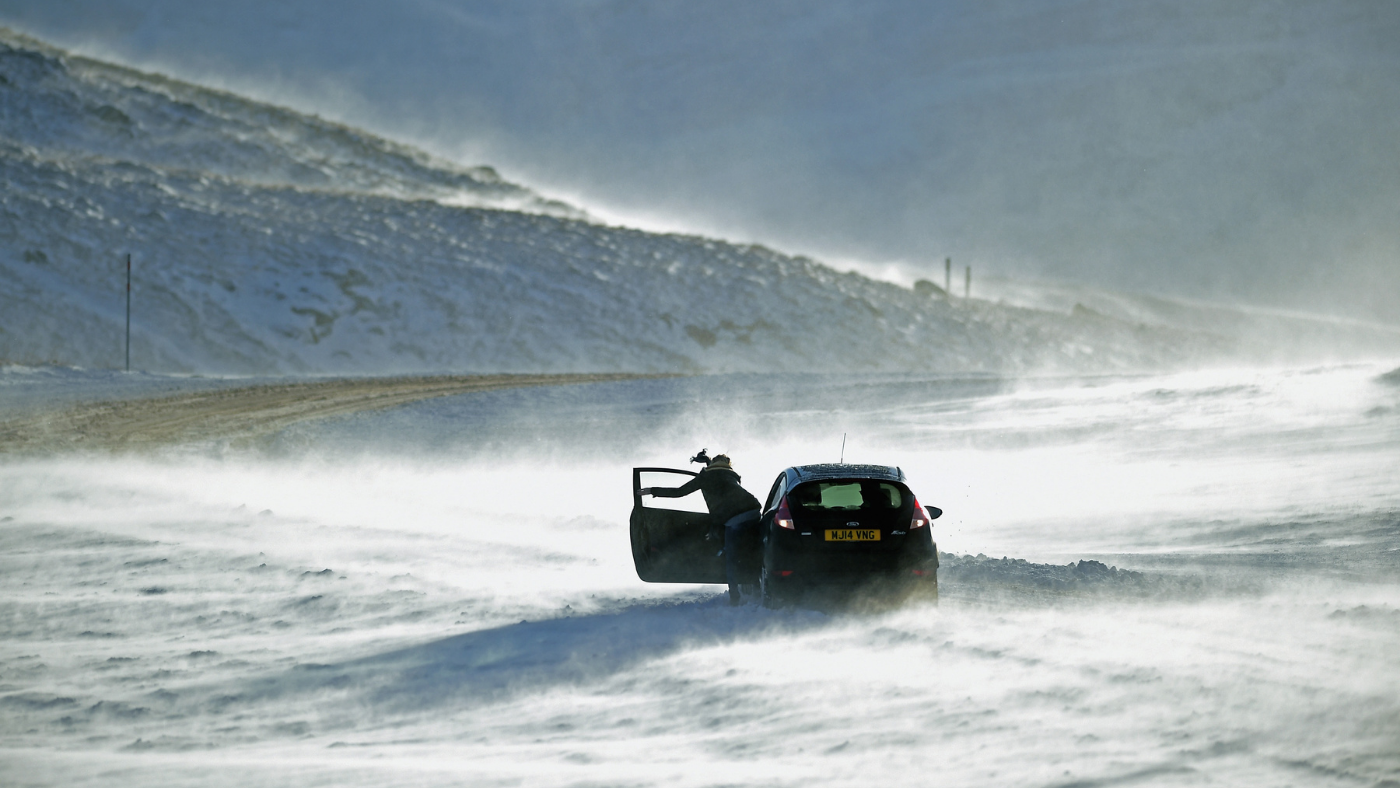SAS Brecon Beacon deaths: 'gross failures' by MoD
Coroner says soldiers who died in selection test would have survived if march was cancelled earlier

A free daily email with the biggest news stories of the day – and the best features from TheWeek.com
You are now subscribed
Your newsletter sign-up was successful
The Ministry of Defence made a "catalogue of very serious mistakes" before and during an SAS march in which three Army reservists died, a coroner has ruled.
Lance Corporals Craig Roberts and Edward Maher and Corporal James Dunsby died from the effects of hyperthermia following an exercise in the Brecon Beacons on 13 July 2013.
The three men had been attempting to complete a 16-mile march in 8 hours 45 minutes on one of the hottest days of the year, as part of a six-month SAS selection process, one of the toughest in the world.
The Week
Escape your echo chamber. Get the facts behind the news, plus analysis from multiple perspectives.

Sign up for The Week's Free Newsletters
From our morning news briefing to a weekly Good News Newsletter, get the best of The Week delivered directly to your inbox.
From our morning news briefing to a weekly Good News Newsletter, get the best of The Week delivered directly to your inbox.
Delivering her ruling today, Coroner Louise Hunt said the men would have survived if the march had been cancelled earlier when other soldiers fell ill, reports the BBC.
There were "gross failures" by the MoD, including a lack of preparation, poor organisation and a "chaotic" response on the day, she said.
Hunt ruled that the failures did not amount to unlawful killing but that "neglect" had contributed to the deaths.
Soldiers had been "inadequately briefed", commanders failed to fully understand the significance of heat illness, water supplies were insufficient and the closest hospital was not correctly identified in the medical plan.
A free daily email with the biggest news stories of the day – and the best features from TheWeek.com
Despite the men using GPS trackers, it took more than 40 minutes for anyone to notice that Cpl Dunsby and LCpl Maher were stationary.
Brigadier John Donnelley from the MoD apologised for the deaths of "three fine soldiers" and said the testing exercise had since been changed. "We have already made a number of changes to the exercise in terms of the way it is run as a result of our own investigations and from those of the Health and Safety Executive," he said.
However, the coroner expressed concern in her ruling that there was still no clear plan or guidance for the detection and treatment of heat illness.
Speaking outside the Solihull Coroner's Court, Cpl Dunsby's widow Bryher said the MoD had "displayed no responsibility, no accountability and no humility for their role in creating the culture which led to the events of the 13 July 2013".
Heatwave linked to deaths of soldiers in Brecon Beacons
15 July 2013
BRITAIN'S blistering summer heat has been linked to the deaths of two servicemen who died while taking part in a training exercise on the hottest day of the year.
Police and the Ministry of Defence are investigating the deaths of the men who are believed to have been taking part in the selection process for the Territorial Army section of the SAS, Sky News reports. They were part of a group deployed in the Brecon Beacons (above) on Saturday when temperatures reached 29.5C.
A third man who took part in the exercise is in a serious condition in hospital.
The Brecon Beacons is one of several locations used by the military for training exercises, The Independent says. Its "rugged and sprawling terrain" helps prepare soldiers for warfare and elite forces personnel like the SAS often make use of it.
The BBC understands that the men who died on Saturday were taking part in an exercise that was supervised but would have "involved them acting on their own and moving from checkpoint to checkpoint." The training had been under way for several weeks and the two victims were believed to have reached the "early stages of the final selection stage".
Phil Speck, an experienced walker who was in the Brecons on Saturday, told the BBC he had seen several soldiers "in full kit" who appeared to be struggling in the heat.
"To start with they looked fine, he said. "Towards the end of the day they were feeling the heat. One soldier spent quite a period of time recovering."
Colonel Richard Kemp, a former infantry commander, told the broadcaster that the determination of troops hoping to be accepted by an elite unit such as the SAS could "sometimes cloud your judgement".
Kemp said that soldiers operating on their own, rather than as part of a group, were particularly vulnerable to pushing on even if they were exhibiting "symptoms of heat illness".
"Sometimes it can engulf you before you've realised what's happening," he said.
Health authorities have urged the public to take care after predictions the heat wave will last until next weekend and temperatures may get as high as 32C on Wednesday.
-
 Corruption: The spy sheikh and the president
Corruption: The spy sheikh and the presidentFeature Trump is at the center of another scandal
-
 Putin’s shadow war
Putin’s shadow warFeature The Kremlin is waging a campaign of sabotage and subversion against Ukraine’s allies in the West
-
 Media: Why did Bezos gut ‘The Washington Post’?
Media: Why did Bezos gut ‘The Washington Post’?Feature Possibilities include to curry favor with Trump or to try to end financial losses
-
 White Easter more likely than a white Christmas
White Easter more likely than a white ChristmasTall Tales And other stories from the stranger side of life
-
 Looming cold snap fuels fears of UK power cuts
Looming cold snap fuels fears of UK power cutsSpeed Read Drop in temperatures in coming days may be ‘first piece of grim jigsaw’
-
 Home Office worker accused of spiking mistress’s drink with abortion drug
Home Office worker accused of spiking mistress’s drink with abortion drugSpeed Read Darren Burke had failed to convince his girlfriend to terminate pregnancy
-
 In hock to Moscow: exploring Germany’s woeful energy policy
In hock to Moscow: exploring Germany’s woeful energy policySpeed Read Don’t expect Berlin to wean itself off Russian gas any time soon
-
 Were Covid restrictions dropped too soon?
Were Covid restrictions dropped too soon?Speed Read ‘Living with Covid’ is already proving problematic – just look at the travel chaos this week
-
 Inclusive Britain: a new strategy for tackling racism in the UK
Inclusive Britain: a new strategy for tackling racism in the UKSpeed Read Government has revealed action plan setting out 74 steps that ministers will take
-
 Sandy Hook families vs. Remington: a small victory over the gunmakers
Sandy Hook families vs. Remington: a small victory over the gunmakersSpeed Read Last week the families settled a lawsuit for $73m against the manufacturer
-
 Farmers vs. walkers: the battle over ‘Britain’s green and pleasant land’
Farmers vs. walkers: the battle over ‘Britain’s green and pleasant land’Speed Read Updated Countryside Code tells farmers: ‘be nice, say hello, share the space’